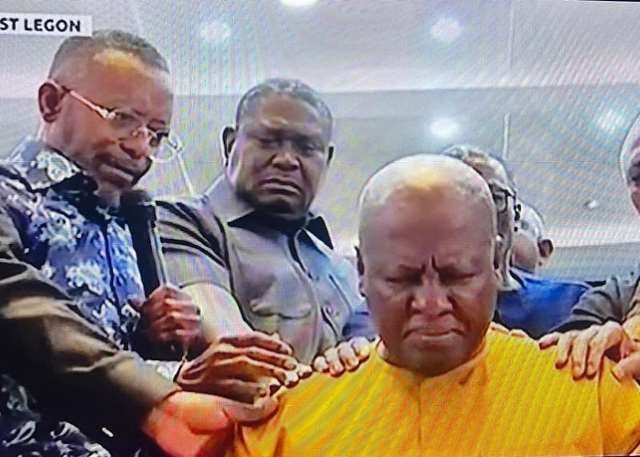Samuel Atta Akyea, the Member of Parliament for Abuakwa South and a notable member of the ruling New Patriotic Party (NPP), has publicly voiced his discontent with Rev. Isaac Owusu Bempah, a well-known pastor whose recent prophecy has ignited controversy within Ghana’s political landscape. On October 1, during a meeting between National Democratic Congress (NDC) flagbearer John Mahama and members of the clergy in Accra, Rev. Owusu Bempah, the Leader and Founder of Glorious Word Power Ministries International, made a bold prediction claiming that Mahama would win the upcoming December 7 elections. The pastor attributed this forthcoming victory to Divine intervention, stating that God had particularly chosen Mahama to lead Ghana again due to his supposed “good heart.”
In response, Atta Akyea expressed skepticism regarding the pastor’s prophecy, which he believes undermines the democratic process in Ghana. During an interview with AsaasePa FM, he cautioned citizens against placing undue faith in prophetic claims, emphasizing that election outcomes should be dictated by the electorate’s choices rather than spiritual predictions. Highlighting the gravity of democratic participation, Atta Akyea stated that it is the people’s will expressed through the ballot box that truly matters, not spiritual declarations. His sentiments convey a strong message about the importance of civic engagement in a democratic society, urging Ghanaians to remain focused on meaningful political discourse and participation.
Akyea’s disappointment goes beyond the mere prediction; he criticized Rev. Owusu Bempah for allowing himself to be utilized in what he described as a politically charged environment disguised as a spiritual setting. He asserted that the pastor’s actions could mislead the public and detract from the pressing issues facing the country. “It is human projections; it couldn’t be God’s projection,” he argued, underscoring his belief that the prophecy is politically motivated rather than divinely inspired. This criticism suggests that Atta Akyea views the mixing of religion and politics as problematic, especially when it affects public sentiment during the crucial electoral period.
Moreover, Atta Akyea shifted the conversation towards more pressing socio-economic issues that impact Ghanaians, such as the economy, education, and infrastructure development. He challenged political parties and their supporters to eschew reliance on mystical predictions and instead engage voters with concrete plans and solutions for the country’s future. By doing so, he hopes to foster a more informed electorate that prioritizes substantive policy discussions over sensational prophecies. This call for issue-based campaigning reflects a broader desire within the political landscape for a departure from superficial narratives towards a more rigorous examination of political agendas.
Interestingly, Rev. Owusu Bempah’s past aligns him more closely with the NPP, having previously prophesied in favor of the party and its leaders. He notably offered prayers for Nana Addo Dankwa Akufo-Addo before his electoral victory in 2016 and supported the party following the nomination of Dr. Mahamudu Bawumia as its flagbearer. This history raises questions about the pastor’s recent forecasting and whether it indicates a shift in allegiance or serves as a strategic maneuver within Ghana’s intricate political dynamics. Akyea’s remarks may also signal an underlying tension within the NPP regarding the pastor’s current stance and its implications for party unity moving forward.
In conclusion, Samuel Atta Akyea’s reaction to Rev. Isaac Owusu Bempah’s prophecy encapsulates the intersection of faith, politics, and public perception in Ghana. While the prophecy has certainly made waves, it has equally emphasized the critical importance of electoral integrity and the need for political discourse rooted in reality rather than mystical affirmations. Akyea’s emphasis on tangible, issue-focused initiatives underscores a commitment to democracy that prioritizes informed engagement over spiritual rhetoric. This discourse highlights wider implications for both the NPP and NDC as they navigate the political landscape leading up to the 2024 elections. As Ghana approaches this critical electoral moment, the dynamics of prophecies, public sentiment, and party allegiances will undoubtedly continue to evolve.


